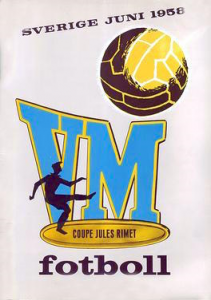As we enter 2021, we can all look forward to a summer full of sport with the Tokyo Olympics and European Championships, postponed from last year, both taking place over three months in June, July and August. Whilst we will all be cheering on the Three Lions in the hope that they can ‘bring it home’, these championships offer a new quilt of comfort with fellow home nations Wales and Scotland having also qualified for the tournament. So, CommunityAd thought what better way to kick off our first edition of 2021 than to pay homage to a former Welsh international who played for our very own Canterbury City.
We focus on the career of Melyvn Hopkins, the Welsh left-back who played over 30 times for The Dragons as well as registering over 200 appearances for Tottenham Hotspur. Born in Ystrad, Rhondda, Wales on 7th November 1934, Hopkins grew up as a son to a coal miner in a coal industry dominated village.
Melvyn’s first interactions with football came when he played for Ystrad Boys Club and although he was a good rugby player, football was his first love and with Ystrad acting as a feeder club for Tottenham Hotspur, it wasn’t long before Hopkins found himself travelling 180 plus miles by train as a 16-year-old to have a trial with The Lilywhites.
After just one trial with Spurs, the London club were keen to sign Hopkins and took him on as an apprentice. Just one year later, Melvyn was making his first-team debut for the first team in 1952.
Over the next ten years, Hopkins established himself as one of the best fullbacks in Britain, playing 219 times for Tottenham and 34 times for Wales. Unfortunately, though, the Welshman failed to play a single game in the season of 1960-61 where Tottenham won the FA Cup and League double, as he suffered a serious head injury playing for Wales against Scotland in 1959 which would keep him out of football for two years.
In 1958, Wales qualified for their first-ever World Cup and the then 23-year-old Hopkins was named in their 22-man squad alongside stars such as John Charles, Cliff Jones and Ivor Allchurch.
Hopkins started every game in the World Cup as The Dragons finished second to Sweden in their group, drawing 1-1 with Hungary and Mexico and 0-0 with Sweden before eventually beating Hungary 2-1 in the group play-off. In the quarter-finals, Wales faced Brazil and lost 1-0 to a 66th minute Pelé goal and the teenage superstar would take the Seleção to glory as Brazil won their first World Cup. Despite the disappointment of exiting the World Cup, many football fans regard Hopkins’ performance against Brazil as his finest game over a 17-year professional career.
Having lost his regular first-team place to Ron Henry, Hopkins would leave Tottenham and sign for Brighton for a fee of £8000. In his three-year spell with The Seagulls, Hopkins would help the club win promotion from the fourth division in his first season before joining Canterbury City for two seasons, having a brief spell with Northern Irish club Ballymena United and finally retiring in 1969 with Bradford Park Avenue.
Life after football saw Melvyn step into coaching as well as serve as secretary to the Sussex coaches association. Hopkins also coached at local schools and even worked as a football scout for Derby County during Dave Mackay’s reign as manager. The former fullback then spent 20 years as sports officer and manager at Horsham Sports Club before retiring in 1998.
In 2003, Hopkins received the FA of Wales merit along with his fellow surviving teammates from the 1958 World Cup.
After battling a long illness, Melvyn Hopkins passed away at Worthing Hospital on October 18th at the age of 75, survived by sons Paul, Simon and Mark and second wife Barbara.



